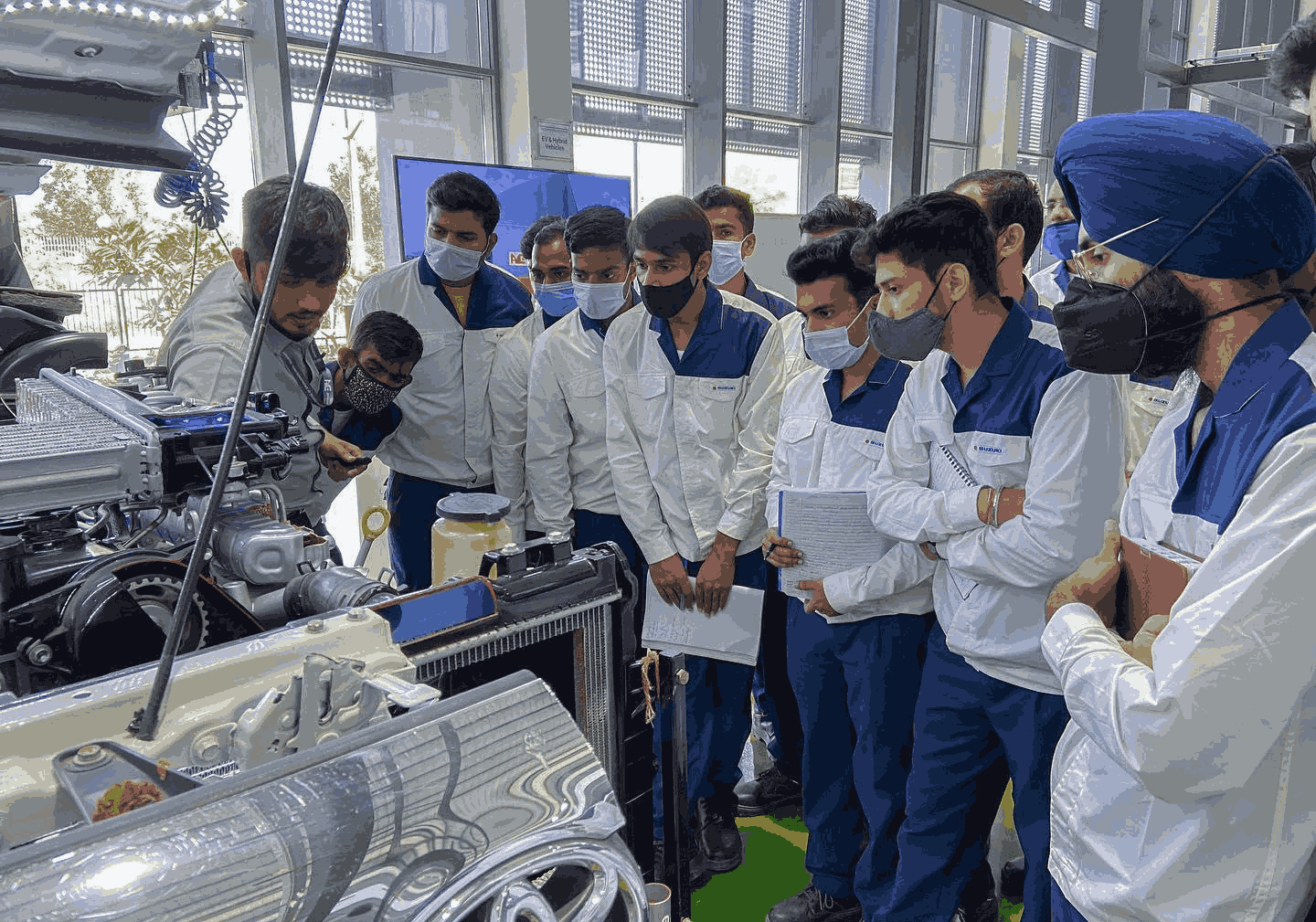With India’s electric vehicle (EV) sector gaining momentum, building a strong charging infrastructure has become more crucial than ever. This infrastructure not only supports the growing number of EVs but also addresses concerns like range anxiety, thereby encouraging wider adoption. In this discussion, we'll explore current trends in EV charging infrastructure and consider future prospects, all while highlighting the importance of specialized education in the field of automobile engineering.
Current Trends in EV Charging Infrastructure
The Indian government has been proactive in promoting e-mobility, implementing policies and programs to accelerate the growth of EV charging infrastructure. As of February 2022, there were approximately 1,640 operational EV charging stations in India, with 940 located in nine major cities, including Ahmedabad, Pune, Delhi, and Bangalore. This concentration reflects the higher demand for electric vehicles in urban areas.
The Faster Adoption and Manufacturing of Electric and Hybrid Vehicles (FAME) scheme has been instrumental in this expansion. In December 2021, the central government allocated around INR 1,300 crores for Phase II of FAME, aiming to install 2,877 EV charging stations in 68 cities and 1,576 stations across highways and expressways. This initiative underscores the commitment to creating a widespread and accessible charging network.
Public sector undertakings (PSUs) have also been pivotal in this development. In February 2022, the Ministry of Power announced that PSUs like IOCL, BPCL, and HPCL would install 22,000 EV charging stations in developed cities and along national highways. These efforts are crucial for building a comprehensive charging network that supports the anticipated growth in EV adoption.
The Dominance of Slow Chargers
In India, slow chargers i.e., Bharat AC-001 & DC-001 typically rated at a 3.3kW and 15kW power output, are prevalent due to their suitability for all types of EVs. These chargers take approximately 8-12 hours to fully charge a vehicle and are best suited for overnight charging at homes or workplaces. Bharat AC-001 & Bharat DC-001 are the slowest chargers and are widely used in India.
According to NITI Aayog, as of 2023, EVs accounted for 49.25% of EV sales, respectively. Projections for 2030 estimate that EVs will constitute 65% of the market, respectively. Given these figures, slow chargers are expected to continue dominating the market, catering to the substantial 2W and 4W segments.
Future Prospects and Opportunities
The future of EV charging infrastructure in India is promising, with several developments on the horizon:
- Technological Advancements : The introduction of next-generation ultra-rapid DC chargers, capable of reducing charging times, presents significant opportunities for newer EV models. These advancements can make EVs more appealing to a broader audience.
- Private Sector Initiatives : Automotive companies are actively contributing to the EV ecosystem. For instance, in May 2022, Hero Electric partnered with RevFin to provide loans to consumers for purchasing 2W electric vehicles, targeting the financing and leasing of 250,000 2W vehicles over the next three years.
- Collaborations : In January 2022, Kinetic Green partnered with China's Aima to enter the 2W electric vehicle market in India. The company planned to launch at least three new models between 2022 and 2023, aiming for around 500,000 new units annually over the next two years.
These initiatives, combined with supportive government policies, are expected to drive the expansion of EV charging infrastructure, making electric mobility more accessible and convenient.
The Role of Specialized Education
As the EV industry evolves, the demand for skilled professionals in automotive engineering and related fields is increasing. International Automobile Centre of Excellence (iACE) as an automotive training institute plays a crucial role in preparing individuals for careers in this dynamic sector.
iACE offers a range of programs designed to equip students with the necessary skills:
- Post Graduate Programmes (PGP)
Focused on automotive systems and manufacturing, these programs combine on-the-job training with internships, providing practical experience.
- Advanced Certification Programs (ACP)
These courses cover specialized areas such as plastics and machining, as well as powertrain systems, catering to the evolving needs of the automotive industry.
- B.Sc in Transportation & Mobility\
A three-year undergraduate program that offers a comprehensive understanding of the transportation sector, preparing students for various roles within the industry.
- Skill Enhancement Programs (SEP)
Short-term auto mechanic courses aimed at enhancing specific skills, such as automotive service, welding, and painting, ensuring that professionals remain competitive in the job market.
By enrolling in these programs, individuals can position themselves at the forefront of the automotive sector, contributing to the advancement of EV technology and infrastructure.
Powering India's EV Revolution
The development of EV charging infrastructure in India is on an upward trajectory, driven by government initiatives, technological advancements, and private sector participation. As we continue to build a sustainable and efficient charging network, the role of skilled professionals becomes increasingly important. By investing in education and training through institutions like iACE, we can ensure that the workforce is well-prepared to meet the challenges and opportunities of the evolving automotive industry.
For those interested in pursuing a career in this dynamic field, exploring programs in automotive training, auto mechanic courses, and automobile engineering can be a significant first step. Together, we can drive the future of electric mobility in India.


